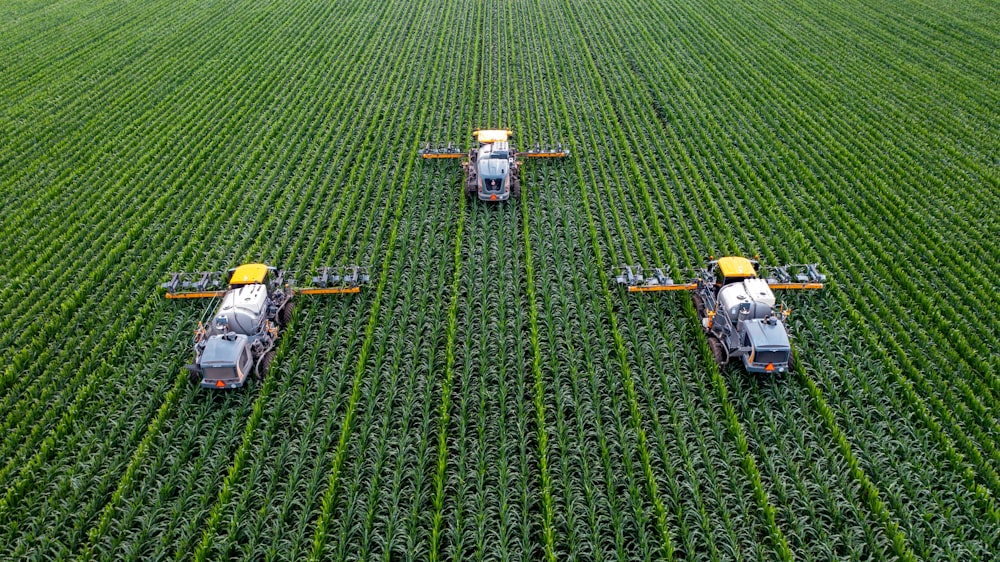How Business Owners Can Benefit from Weather API Services

Photo by Gavin Allanwood @ unsplash
It is crucial to address the urgent global issues of greenhouse gas emissions and climate change. As governments worldwide take action through policies and regulations, businesses must also adapt accordingly. The impact of greenhouse gases extends beyond climate change; it significantly influences the competitive landscape in the business world.
As a savvy business owner, it is imperative to proactively adapt to the shifting climate and not just minimise its impact, but also prosper in an environmentally sustainable and ethical manner. By integrating climate information into your organisational strategies, you can gain a significant competitive advantage.
Read more: Leading with Purpose in the Era of Sustainability
By harnessing the potential of Weather API services, businesses can tap into accurate and historical weather data that holds significant value in optimising their operations. This proactive strategy enables companies to make informed decisions that not only align with their goals but also positively contribute to environmental sustainability. With such valuable insights at hand, businesses can effectively contribute towards sustainability while still achieving their goals.
Weather API and Environmental, Social, and Governance (ESG)
By incorporating Weather API services into their business strategies, entrepreneurs have an invaluable chance to bolster and enhance their Environmental, Social, and Governance practices. Through the utilization of dependable and precise weather data, businesses can proactively implement measures to decrease their carbon emissions.
For instance, they can scrutinise weather patterns in order to optimize energy usage and reduce waste during favourable conditions. Additionally, by leveraging Weather API services effectively, business owners are able to successfully manage climate-related risks by anticipating potential disruptions in supply chains, infrastructure systems, and customer demand. This proactive approach enables them to develop contingency plans that effectively address these challenges head-on.
Explore: ESG's Powerful Role in Your Business

Digital Transformation and the Role of Weather API
Digital transformation has become a buzzword in recent years, as businesses and industries strive to leverage technology and data to enhance their operations and improve outcomes. Weather API services have revolutionized weather forecasting in the digital age. These services empower developers, businesses, and individuals by granting them access to a vast array of meteorological data. Weather Data API, like Visual Crossing, can be used for many purposes, ranging from enhancing customer experiences to optimizing operations and making informed decisions.
How The Weather API Leaders Can Solve Challenges Through A Marketing And Advertising Environment
The marketing and advertising industry heavily relies on weather conditions. Weather can have a significant impact on outdoor events, product promotions, and media campaigns. Accurate rainfall predictions are particularly crucial in decision-making within these fields.

For instance, precise forecasts allow farmers to plan their irrigation schedules effectively and enhance crop yields through optimal agricultural planning. Additionally, accurate rainfall forecasts play a vital role in event planning to ensure that outdoor events are not disrupted by unexpected downpours.
Weather API services, equipped with state-of-the-art algorithms and real-time data, offer marketers and advertisers the precise rainfall forecasts necessary for making well-informed decisions. By incorporating Weather API services into their marketing and advertising strategies, businesses can effectively navigate the obstacles presented by unpredictable weather conditions.
How Weather APIs Boost Other Business Operations
Weather APIs offer several key benefits that can significantly enhance business operations.
Real-Time Data
By utilising a Weather API, enterprises are able to acquire instantaneous weather data in real-time, thus enabling them to remain well-informed regarding prevailing weather conditions. This functionality holds significant value for industries such as aviation and transportation, which heavily rely on up-to-date information on meteorological patterns in order to make necessary modifications to their flight schedules or routes.
50 Years of Historical Data
In addition to providing real-time information, Weather APIs also offer access to historical weather data. This archival data is valuable for conducting comprehensive analysis, identifying trends, and preparing for future endeavors.
For instance, within the agricultural sector, studying past weather patterns can assist farmers in making well-informed choices regarding irrigation scheduling, managing pests and diseases effectively and selecting suitable crops based on previous performance.
Address Geocoding
Weather APIs often include geocoding capabilities, which enable businesses to retrieve weather data for specific locations. This feature is particularly beneficial for businesses operating in multiple locations or those that require weather information for specific geographical areas.
Incorporating Weather APIs into Your Strategy
The incorporation of a Weather API into one's business strategy offers a multitude of advantages. Primarily, it enables more precise and dependable weather forecasting, thereby enhancing decision-making processes. By integrating weather APIs into their strategies, businesses can optimise essential activities such as crop management, flight scheduling, route planning and optimisation, energy generation, and distribution.

Furthermore, the availability of real-time weather data through APIs empowers enterprises to swiftly respond to weather-related occurrences and adapt their operations accordingly. Moreover, utilising weather APIs also has the potential to augment customer experiences.
The Impact of Weather APIs on Forecast Accuracy
The utilisation of Weather APIs has considerably enhanced the precision of weather predictions. By leveraging computational intelligence technologies and conducting comprehensive analyses on big data, advances in accuracy have been made since the 1980s in weather forecasting methods.
These improvements are attributable to superior numerical weather prediction systems that undergo continuous development through a deeper comprehension of physical processes, assimilation techniques for data, and integration with diverse sources including API-based meteorological forecasts.
Future Trends: The Evolution of Weather APIs
In anticipation of the future, it is predicted that Weather APIs will continue to evolve. The emergence of big data technology presents new prospects for enhancing the precision of weather forecasting. The integration of large datasets and the application of efficient algorithms based on machine learning, soft computing, and data mining offer significant potential for refining and bolstering weather forecast models.
This may interest you: Children are Teaching Us How One Person Can Change the World
Conclusion
Integrating a Weather API into corporate strategies offers various advantages. These range from enhancing decision-making processes to providing enhanced customer experiences, enabling businesses to optimise their operations and adapt accordingly as weather-related events unfold. Through leveraging extensive historical weather data and employing advanced algorithms, the integration of Weather APIs has notably increased the precision of weather forecasts.

This improvement in accuracy ensures greater safety measures and safeguards essential economic sectors like agriculture, aviation, water management, energy supply, and emergency response. Moreover, reliable access to accurate and easily accessible weather information is critical for making informed decisions regarding climate change risk mitigation strategies.
Be sure to check out the media below:
Leaderonomics.com is an advertisement-free website. Your continuous support and trust in us allow us to curate, deliver and upkeep the maintenance of our website. When you support us, you enable millions to continue reading for free on our website. Will you give it today? Click here to support us.
Business
Tags: Abundance Mindset, Business Management, Consultant Corner
Mark San Juan is a highly accomplished business author with a passion for sharing knowledge and insights in the world of commerce. With a background in business administration and extensive experience in the corporate sector, Mark has developed a deep understanding of various industries and possesses a keen eye for emerging trends.






